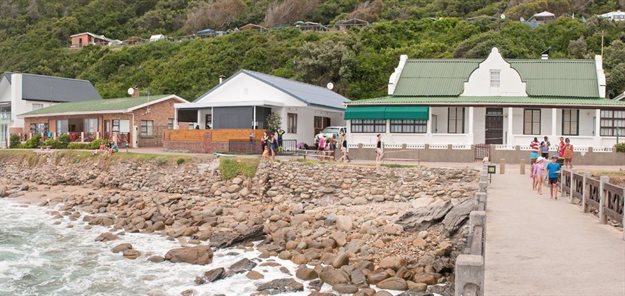Trending
Elections 2024
Jobs
- Studio Account Manager Cape Town
- Senior Bookkeeper Knysna
- Inside Sales Representative White River
- Trainer - Driver Code 14 Cape Town
- Brand Ambassador White River
- 12-Month Automotive Learnership Opportunity Pinetown
- Sales Consultant White River
- Communications Manager George
- Print Machine Minder - Intern Edenvale
- Senior Business Analyst Johannesburg
Considerations before leasing your home for short-term rentals

However, before homeowners sign up their home alongside the many other South African holiday listings on portals such as Airbnb, they need to do their homework before committing to this venture.
Legal, financial implications
Short-term letting is not as simple as merely uploading photos of your home onto an app and waiting for the cash to flow in. There are various legal and financial implications involved in these short-term rentals which could land homeowners in some serious trouble if they fail to adhere to the requirements.
The first of which relates to tax. Short-term letting is still classified as rental income and will need to be declared to the SA Revenue Service (SARS) within that tax year. When it comes to calculating the tax on your rental income earned, the SARS website stipulates that “the rental income you receive should be added to any other income you may have, but will also be reduced by certain permissible expenses incurred”. These expenses include items such as rates and taxes, bond interest, and property levies.
However, with short-term rentals, homeowners can only deduct these expenses in proportion to the amount of days the property was rented out, which can in some cases lead to a homeowner paying more in tax for the year than what the short-term rental amount earned him/her in profit.
New Tourism Amendment Bill
Additionally, the new Tourism Amendment Bill 2019 might soon make it trickier for homeowners to generate large profits from short-term letting options. The proposed Bill, which was opened to public comment until 15 July 2019, is intended to enforce minimum standards to promote a fairer competitive landscape in which hotels, guest houses and short-term rentals can operate. This includes a threshold on the number of nights a short-term rental may be rented out, as well as possible zoning restrictions on where short-term rental agencies may operate.
This Bill may well cut into the profit margin homeowners stand to make on their short-term rental. I would recommend that homeowners familiarise themselves with this new Bill before they sign their property up for short-term rentals.
A way to avoid these risks is to involve a managing rental agent who could walk you through all the various pitfalls of short-term letting. Speak to a rental agent in your suburb who knows the ins and outs of short-term letting and can help you develop and coordinate a schedule that will maximise your returns in accordance with the various restrictions.
















